Meet the New Faculty: School of the Arts
The School of the Arts welcomes eight new faculty members, and has promoted three to assistant professor. And at the Institute for Liberal Arts and Interdisciplinary Studies, an affiliated faculty member becomes a scholar-in-residence.
Performing Arts
New
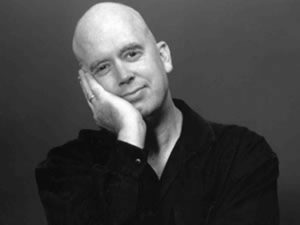
Rinde Eckert, visiting faculty, Waldman Professor in Theatre Arts
Will teach: devised theatre
Eckert is an award-winning interdisciplinary performer, writer, and director. In 2012, he was named an inaugural Doris Duke Artist, and won a Grammy Award for Best Small Ensemble Performance as a collaborator on the album Lonely Motel (Cedille Records). In 2009, he received the Alpert Award in the Arts for Theatre, and was a Finalist for a Pulitzer Prize for Drama in 2007.
In Fall 2018, Eckert will teach a course at Emerson in devised theatre, in which students will collaboratively devise an original ensemble performance that will be produced during Emerson Stage’s Spring 2019 season. He has previously taught at Princeton University, the University of California, Davis; and the University of Iowa.
ECT: What do you most look forward to teaching students?
RE: I enjoy the variety of talents and sensibilities students bring into the room. I was able to teach a class last spring in order to get to know what Emerson students are like. I found them warm, intelligent, and engaged. So I’m excited to begin this journey with them.
ECT: What was the last new thing you learned?
RE: I just learned that the Stamford, Connecticut Amtrak station is not a place to spend more than 10 minutes. Before that, I learned that the mode I’d written this tenor banjo tune in could be described best as F major/minor. And before that, I found a surprising passage in an obscure unpublished story by Mark Twain that opened a new window into his character and mind.
Before that, I discovered that, although I’m a romantic at heart, I am not nostalgic at all, so the romantic in me thinks a chicken pot pie will remind me of my youth, then when I get the chicken pot pie, I realize it does, and that I don’t really care to be reminded of my youth. I should have left the chicken pot pie uneaten, but I could imagine my mother having taken the time to cook it for me. So I ate the pie.
ECT: What do you do when you’re not working?
RE: As an artist, I’m always working and not working at the same time. I try (sometimes unsuccessfully) to surrender to whatever situation I find myself in, but part of me is asking what I might be able to use: an idea, a color, a sound, a character, a way of moving. I never know what will be useful to me, so I can’t afford to take anything too lightly.
My wife is a writer (as well as an actress) so she’s hunting as well. But to be honest, I don’t see the point of these divisions, working as opposed to playing or relaxing or…
When I’m engaged in what I’m doing, I feel the same, no matter if I’m in the theater or watching the US Open on TV: same eyes, same soul, same sense of humor, same neuroses, same frustrations, same passions, same questions moving under the surface while I’m writing a scene for the new piece I’m working on, or I’m distracted by Rafa Nadal’s backhand winner down the line.
“Then, he turned off the match, went to the piano, played a couple of Bach preludes and fugues, then decided he should replace the toilet paper holder in the downstairs bathroom that Ellen had been complaining about. In the middle of the process – level in one hand, pencil in his teeth, drill on the floor within reach – he thought, ‘I’ve never been happier.’”
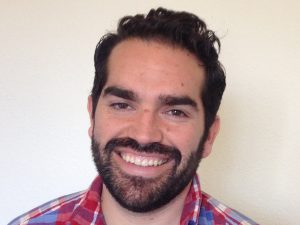
Nathaniel (Natty) Justiniano, assistant professor
Will teach: comedic performance
BFA, Chapman University
MFA, Dell’Arte International School of Physical Theater
Hired through the Presidential Faculty Inclusive Excellence program, Justiniano will teach courses in Performing Arts and the Comedic Arts program. He has previously taught at Southern Illinois University, the Clown Conservatory, Kinetic Arts Center, and the New Conservatory Theater Center.
In 2009, Justiniano founded Naked Empire Bouffon Company, the only company in the U.S. dedicated exclusively to the research and performance of bouffon. Naked Empire uses satire to interrogate the contemporary social and political climate, highlighting issues related to communities, whiteness, and class privilege.
His work has garnered multiple awards, including Best of the Fringe Awards from San Francisco Fringe Festival (2012, 2017), Best Puppeteer Award from SF Weekly (2014), and Best of the Bay Award from the San Francisco Bay Guardian (2011).
ECT: What do you most look forward to teaching students?
NJ: That failure is your friend.
ECT: What was the last new thing you learned?
NJ: That before SNL founder Lorne Michaels changed his name from his given, Lorne Lipowitz, he considered going with Lorne Ranger and Lorne Zwelk.
ECT: What do you do when you’re not working?
NJ: Cuddle with my husband while watching episodes of British crime dramas.
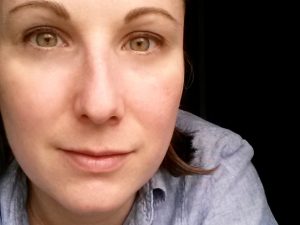
Sarah Ploskina, artist-in-residence
Will teach: theatre education
MA, Emerson College
Since 2013, Ploskina has been chair of the Department of Theatre, Speech, and Dance at St. George’s School, where she taught courses in acting, improvisation, playwriting, and dramatic literature. At St. George’s, she created the Student Devised Performance Project, through which students develop documentary theatre pieces. Her project, Behind the Hills, based on stories from survivors of the Rwandan genocide, was presented there in 2015.
Prior to her appointment at St. George’s, she worked in regional and off-Broadway theatre companies in Washington, D.C. and New York. She has been a guest lecturer at the Rhode Island School of Design, a curriculum and instruction consultant at the Trinity Academy for the Performing Arts, and an adjunct professor at Manhattanville College.
Luciana Stecconi, assistant professor
Will teach: scenic design
Universidad del Salvador, Buenos Aires
MFA, Brandeis University
Stecconi’s scenic design work explores the relationship between the playing space, text, and form, while integrating other artistic disciplines – sculpture, installations, and projections – into the creative process. As an active theatre professional in Washington, D.C., her recent designs include The Effect, Cloud 9, Hedda Gabler, and Bad Jews at the Studio Theatre, and The Winter’s Tale at the Folger Theatre. In 2010, she won the Outstanding Emerging Artist Award at the 25th Annual D.C. Mayor’s Arts Awards Ceremony.
She has previously taught at George Mason, Georgetown, and American universities. At Emerson, in addition to teaching, she will design for Emerson Stage.
ECT: What do you most look forward to teaching students?
LS: How to appreciate theatre design, and all the artistry, passion, and skills involved in its practice.
ECT: What was the last new thing you learned?
LS: Boston’s public transit map!
ECT: What do you do when you’re not working?
LS: Watch Netflix. And gardening – once I join a community garden.
New Role
Diane DiCroce, assistant professor
Will teach: musical theatre directing and acting
BA, Pennsylvania State University
MM, Boston Conservatory
DiCroce was artist-in-residence at Emerson from 2016-2018 before being appointed assistant director. Prior to Emerson, she taught musical theatre acting and voice at Pace University, the University of Findlay, and the University of Central Florida, where she helped to shape the graduate musical theatre curriculum.
As a successful musical theatre performer, DiCroce has performed on Broadway (Les Misérables) and various national and international tours (Les Misérables, 42nd Street, My Fair Lady). This summer, she directed two shows at the Weathervane Theatre in New Hampshire, casting a number of Emerson musical theatre students and alumni.
Visual and Media Arts
New
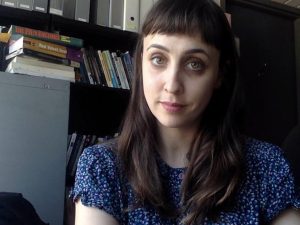
Maria Corrigan, assistant professor
Will teach: media studies, comedy studies
MA, Emory University
Ph.D, University of California, Santa Barbara
Corrigan comes to VMA and the Comedic Arts program from Concordia University, where she was an assistant professor of media studies. Her research specialties include comedy studies, film history, global and transnational studies, and Russian and Eastern European studies. Currently she is working on projects that explore eccentrism and the transnational flow of comedy. Prior to her appointment at Concordia, Corrigan taught at Georgia State University and UC, Santa Barbara.
ECT: What do you most look forward to teaching students?
MC: Emerson students have a reputation for being remarkably creative. I am really looking forward to teaching Media Theory and Criticism this fall, since I love seeing my filmmaker and artist students latch on to different theories that change the way they see the world and their craft.
ECT: What was the last new thing you learned?
MC: This might be a popular one among people who just moved to Boston: the “Massachusetts left”!
ECT: What do you do when you’re not working?
MC: I would normally answer this question by saying that I seek out live comedy, but that no longer works since I teach in Comedic Arts. I spent a lot of the summer traveling, barbecuing outside with friends, and riding around town on my bicycle.
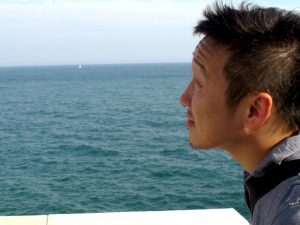
Ougie Pak, assistant professor
Will teach: screenwriting, filmmaking
BA, University of California, Berkeley
MFA, City College of New York
As a filmmaker and writer, Pak’s work explores the lives of immigrants and ethnic minorities in the U.S. He has been a top-10 finalist in Francis Ford Coppola’s American Zoetrope Screenplay Contest, and a national finalist in the Academy of Motion Picture Arts and Sciences’ Student Academy Awards competition.
As a production assistant at Antidote Films, he aided the development and production of several acclaimed documentaries and narrative films, including The Kids Are Alright (nominated for four Oscars), Mysterious Skin, and Roman Polanski: Wanted and Desired (Sundance Film Festival, Grand Jury Prize nominee). He has taught at DePaul University and Indiana University, Bloomington.
ECT: What do you most look forward to teaching students?
OP: With screenwriting and filmmaking, I think more than a particular thing I look forward to teaching is just the opportunity to help students create good work.
ECT: What was the last new thing you learned?
OP: I’ve been working like crazy to meet a writing deadline, so I’m continually learning the lesson I already know: how hard it is to write good material. There’s no shortcut – it’s just always a lot of blood, sweat, and tears (and a little magic).
Oh, also: My local Whole Foods has Wellfleet oysters – they can’t shuck them there by law, but the guy taught me how to shuck them myself, which might become a problem…
ECT: What do you do when you’re not working?
OP: Lately, I’ve been thinking about design a lot because I have to furnish my new place. Usually, I’m probably thinking about food though.
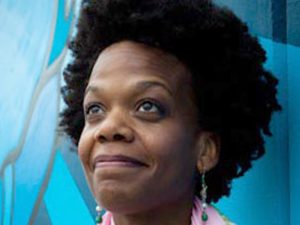
Rae Shaw, assistant professor
Will teach: screenwriting
BA, University of Chicago
MFA, University of Miami
Shaw comes to Emerson from Los Angeles, where, in 2008, she started her own production company, Wicked Lovely Films, with a mission to create projects that incorporate poetry, art, discovery, and learning. Her award-winning short, Soap and Roses, has appeared in several festivals throughout the U.S. and abroad.
She has received numerous awards, including the Guy Hanks and Marvin Miller Screenwriting Fellowship and the Woodrow Wilson National Foundation Fellowship. She has been a semifinalist in the 2017 Austin Film Festival Script Competition and a quarterfinalist for the Nicholl Screenwriting Fellowship (2014) for her feature project, The Repass.
Shaw has previously taught courses in producing and screenwriting at New York Film Academy in Burbank, California.
ECT: What do you most look forward to teaching students?
RS: Their surprise and discoveries
ECT: What was the last new thing you learned?
RS: Tai chi chuan
ECT: What do you do when you’re not working?
RS: I love exploring lighthouses, and am on a never-ending search for the perfect potato taco.
New Roles
Ken Feil, assistant professor
Will teach: media and cultural studies
BA, MA, Emerson College
Ph.D., University of Texas at Austin
Feil has been teaching at Emerson since 1995, first as an affiliated faculty member, then as a scholar-in-residence. Since 2015, he has served as a committee member for the Comedic Arts program. He will continue to teach media and cultural studies in VMA and Comedic Arts as assistant professor, as well as assist the comedy program.
His research and teaching focus on LGBTQIA+ communities and queer media theory, in addition to historical approaches to genre studies. In 2017, he received an Enduring Questions grant from the National Endowment for the Humanities to design and teach the course, Laughing At/Laughing With: How Does Comedy Unite and Divide? He is completing a book, Fearless Vulgarity: Jacqueline Susann, Comedy and Queer Culture, in which he traces the continual convergence of comedy and queer themes in the bestselling writer’s work, marketing, reception, and cult following over the past 50 years.
Mark Saraceni, assistant professor
Will teach: screenwriting
BS, Syracuse University
MFA, National University
Saraceni has taught at Emerson, first as an affiliated faculty member, then as artist-in-residence, since 2014. He has written and produced over 150 hours of TV’s most original and highest rated content, including episodes of The Sopranos, The X-Files, EZ Streets, JAG, Law and Order, The Practice, Cover Me, Farscape, and Mystery Woman. His work has been recognized with three Emmy nominations for Best Writing and a Golden Globe Award.
Prior to coming to Emerson, he taught at New England College, Columbia College Hollywood, and California State University, Northridge.
Writing, Literature and Publishing
New
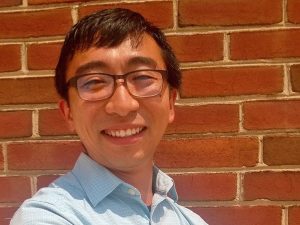
Douglas Ishii, assistant professor
Will teach: Asian diasporic literature
BA, University of California, Irvine
Ph.D., University of Maryland
Ishii’s research specialties encompass comparative Asian American studies, queer of color critique, and 20th- and 21st-century U.S. multiethnic literatures and cultural studies. He is currently revising his book manuscript, Something Real: Asian American Arts Activism and the Racialization of Sophistication, in which he explores an intellectual theory of Asian American activism through critical uses of literature, filmmaking, and other media.
Ishii most recently was a visiting assistant professor at Northwestern University, where he taught courses in Asian American humanities. Prior to that, he taught at the University of Colorado, Boulder, and the University of Maryland, College Park.
Institute for Liberal Arts and Interdisciplinary Studies
New role
Kiri Gurd, scholar-in-residence
Will teach: gender, globalization, human rights, international organizations, race and ethnicity
MSc, London School of Economics
Ph.D., Boston University
With a solid track record as an affiliated faculty member, Gurd aims to equip students with the intellectual and methodological resources to think critically, historically, globally, and reflexively about the social world, particularly in relation to inequality and its impacts.
Her research focuses on the construction of global culture, with an interest in identifying the mechanisms at the organizational level and the key players that create global norms, particularly in relation to human rights. Her theoretical framework draws on postcolonial theory, transnational feminism, social constructionism, and cultural sociology.
Gurd has been the recipient of multiple fellowships at various institutions, including the International Center for Transitional Justice in New York, Pardee Center for the Longer-Range Future in Boston, and the Unit for Global Justice in London. She has collaborated with a number of esteemed scholars, such as Susan Silbey at MIT and Rashida Manjoo, the United Nations’ Special Rapporteur on Violence Against Women. Her work has been featured in the International Journal of Women’s Studies and in a number of manuscripts, such as Women, War, and Violence: Personal Perspectives and Global Activism 2010 and The Encyclopedia of Race, Ethnicity, and Nationalism 2014.
Categories